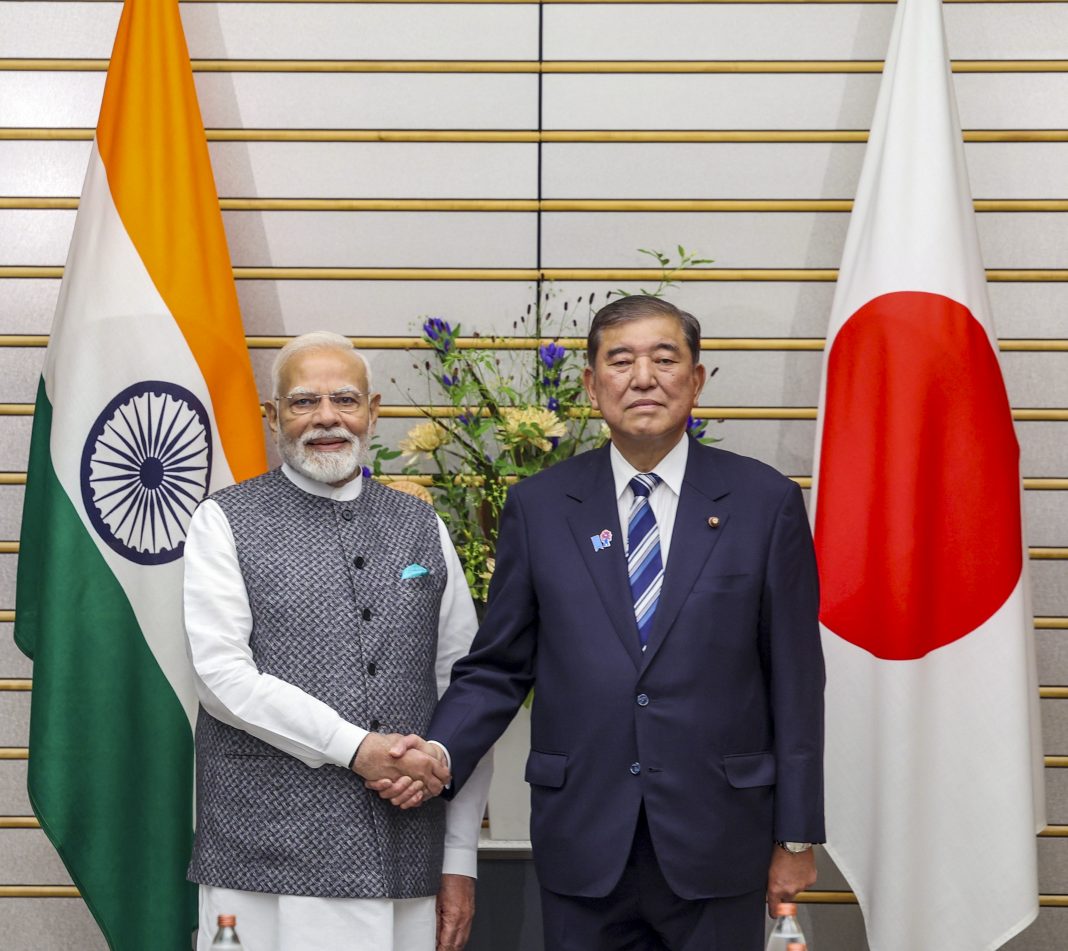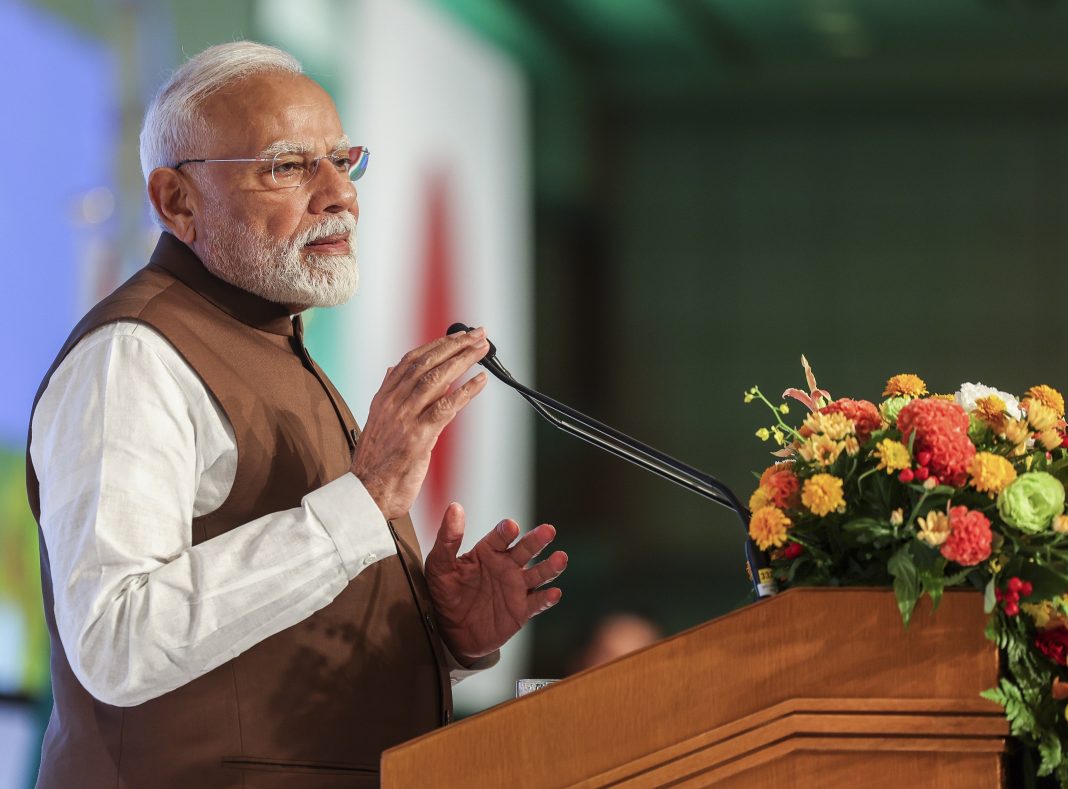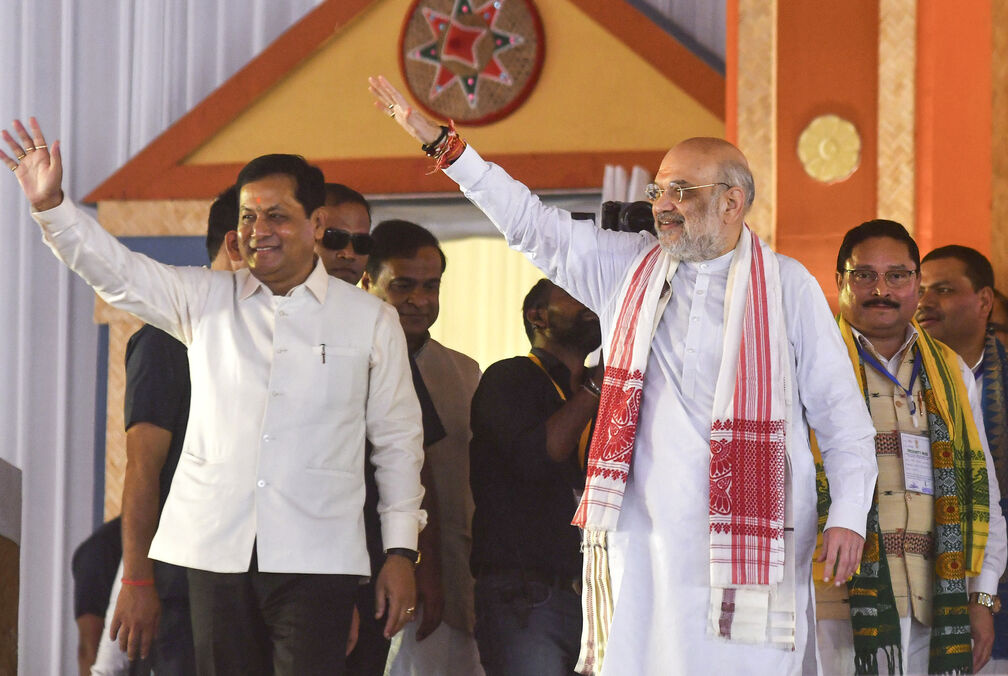Tokyo, Aug 29: Japan on Friday set an investment target of 10 trillion yen (approx Rs 60,000 cr) in India over a decade and the two sides sealed a raft of big-ticket pacts, including a framework for defence ties and a 10-year roadmap to largely boost economic partnership — decisions that came amid turbulence triggered by Washington’s trade policies.
The new measures to further expand India-Japan special strategic and global partnership were unveiled following summit talks between Prime Minister Narendra Modi and his Japanese counterpart Shigeru Ishiba.
The two sides firmed up 13 key agreements and declarations, and announced the launch of several transformative initiatives, including an economic security architecture to promote supply chain resilience in strategic sectors such as semiconductors, clean energy, telecom, pharmaceuticals, critical minerals and new and emerging technologies.
“We both agree that as two major economies and vibrant democracies, our partnership is very important not only for our two countries, but also for global peace and stability. Strong democracies are natural partners in shaping a better world,” Modi, flanked by Ishiba, said.
“Today, we have laid a strong foundation for a new and golden chapter in our Special Strategic and Global Partnership. We have set a roadmap for the next decade.”
“We have set a target of 10 trillion yen investment from Japan in India over the next ten years,” Modi said.
Of the agreements, one relates to promoting mobility of 50,000 skilled and semi-skilled personnel from India to Japan in the next five years, while another agreement will advance collaboration in digital public infrastructure.
The 10-year roadmap focuses on significantly expanding overall economic ties. It comprised several key pillars for boosting engagement that included economic security, mobility, ecological sustainability, technology and innovation, health, people-to-people exchanges and engagements between Indian states and Japanese prefectures.
Another key pact was to advance cooperation in supply chain resilience for critical minerals, including through the development of processing technologies, joint investments for exploration and mining and efforts for stockpiling critical minerals. A separate declaration was sealed for promoting projects on hydrogen and ammonia.
The pacts signed also featured one on a joint crediting mechanism and another on cooperation between the Indian Space Research Organisation and Japan Aerospace Exploration Agency for a joint lunar-polar exploration mission.
The document defines terms and conditions for cooperation between India and Japan on the Chandrayaan-5 mission, giving practical shape to a “landmark” collaboration.
The joint crediting instrument will facilitate the diffusion of decarbonising technologies, products, systems, and infrastructure, thereby contributing to India’s greenhouse gas emission reduction goals and promoting Japanese investment in India.
The comprehensive framework on defence will provide for defence and security cooperation to respond to contemporary security challenges, according to the Ministry of External Affairs (MEA).
The two prime ministers also noted the importance of the Mumbai-Ahmedabad high-speed rail as a flagship project between India and Japan, and concurred to work towards the commencement of operations at the earliest and cooperate on the introduction of the latest Japanese Shinkansen technology in India.
The Indian side appreciates Japan’s offer to introduce, in the early 2030s, the E10 series of the Shinkansen that runs on the Japanese signalling system, the joint statement said.
Modi and Isiba also expressed serious concern over the situation in the East China Sea and the South China Sea against the backdrop of China’s increasing military muscle-flexing in the strategic waters.
Modi and Ishiba reiterated their strong opposition to any unilateral actions that endanger the safety as well as freedom of navigation and overflight, and attempt to change the status quo by force or coercion.
“They shared their serious concern over the militarisation of disputed features. They reaffirmed that maritime disputes must be resolved peacefully and in accordance with international law, in particular the UN Convention on the Law of the Sea (UNCLOS),” according to a joint statement.
The two prime ministers, taking into account the prevailing global situation, resolved to uphold the international order based on the rule of law and reaffirmed their steadfast commitment to a free and open Indo-Pacific that is peaceful, prosperous and resilient.
Modi and Ishiba also unequivocally condemned in the strongest terms the terrorist attack in Pahalgam, and took note of the report by the UN Security Council’s Monitoring Team mentioning The Resistance Front (TRF) for the attack.
“Prime Minister Modi further explained that the TRF had claimed responsibility for the attack. Prime Minister Ishiba noted this with concern. They called for the perpetrators, organisers, and financiers of this reprehensible act to be brought to justice without any delay,” the joint statement said.
In his remarks to the media, Modi said Japanese technology and Indian talent are a winning combination.
“While we are working on high-speed rail at one end, we are also making rapid progress in areas like ports, aviation, and shipbuilding under the next generation mobility partnership,” he said.
“We also have shared interests in the areas of defence and maritime security. We have jointly decided to further strengthen our cooperation in the fields of defence industry, and innovation,” he said.
Modi and Ishiba tasked their foreign ministries to accelerate policy-level exchanges on economic security with a view to identifying concrete outcomes and projects in strategic sectors.
In this context, both sides consent to work towards further protecting high-technology trade while mutually easing export control challenges.
PM Ishiba, recognising immense potential for Japanese companies to deepen supply chains in India, requested the Indian side to continue with its regulatory and other reforms to meet this objective.
On his part, Modi recognised the contribution of Japanese companies and institutions in creating employment opportunities and fostering growth and innovation in India.
He recalled his intent to carry out additional regulatory and other reforms to facilitate investment into India and invited more Japanese businesses to avail of these, the joint statement said. (PTI)




